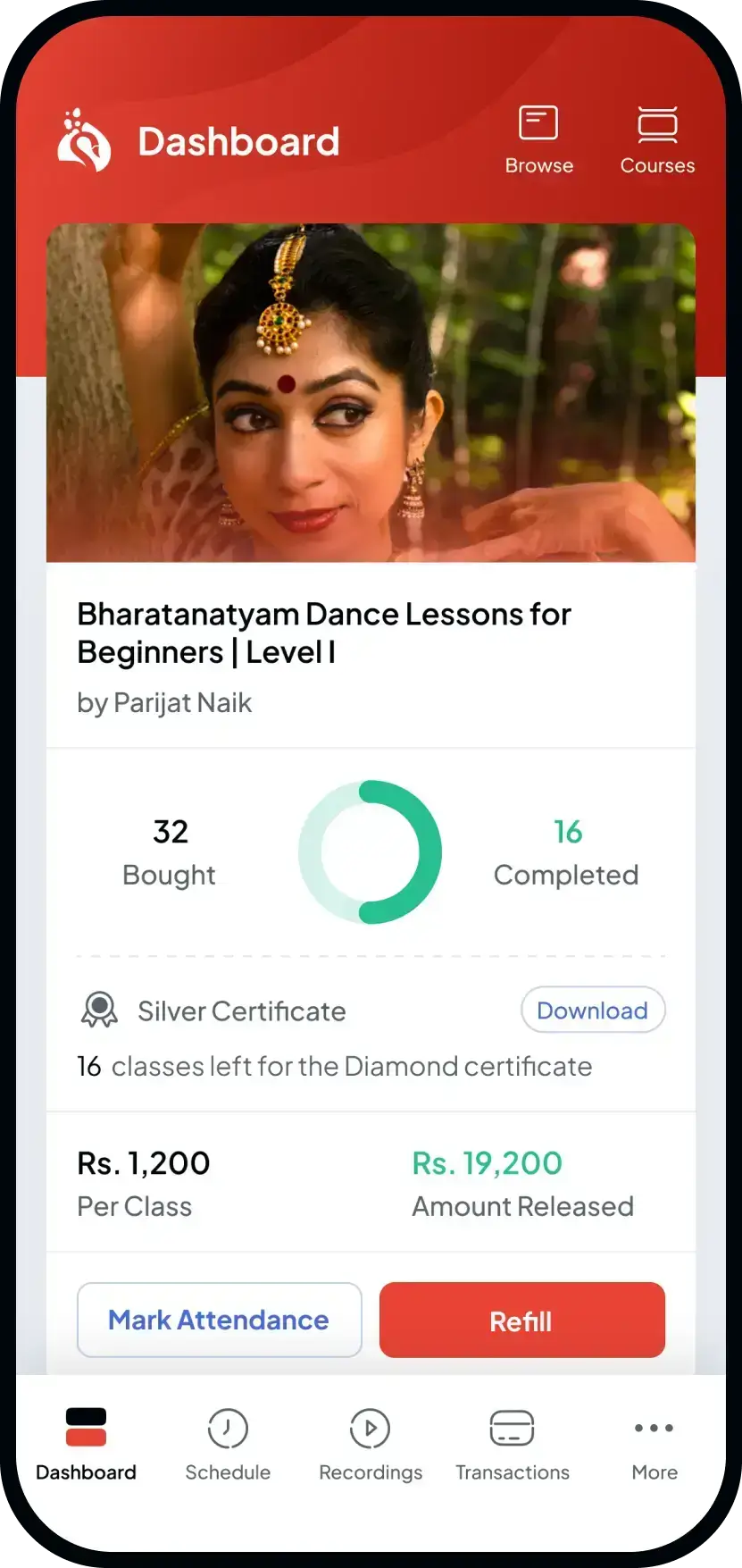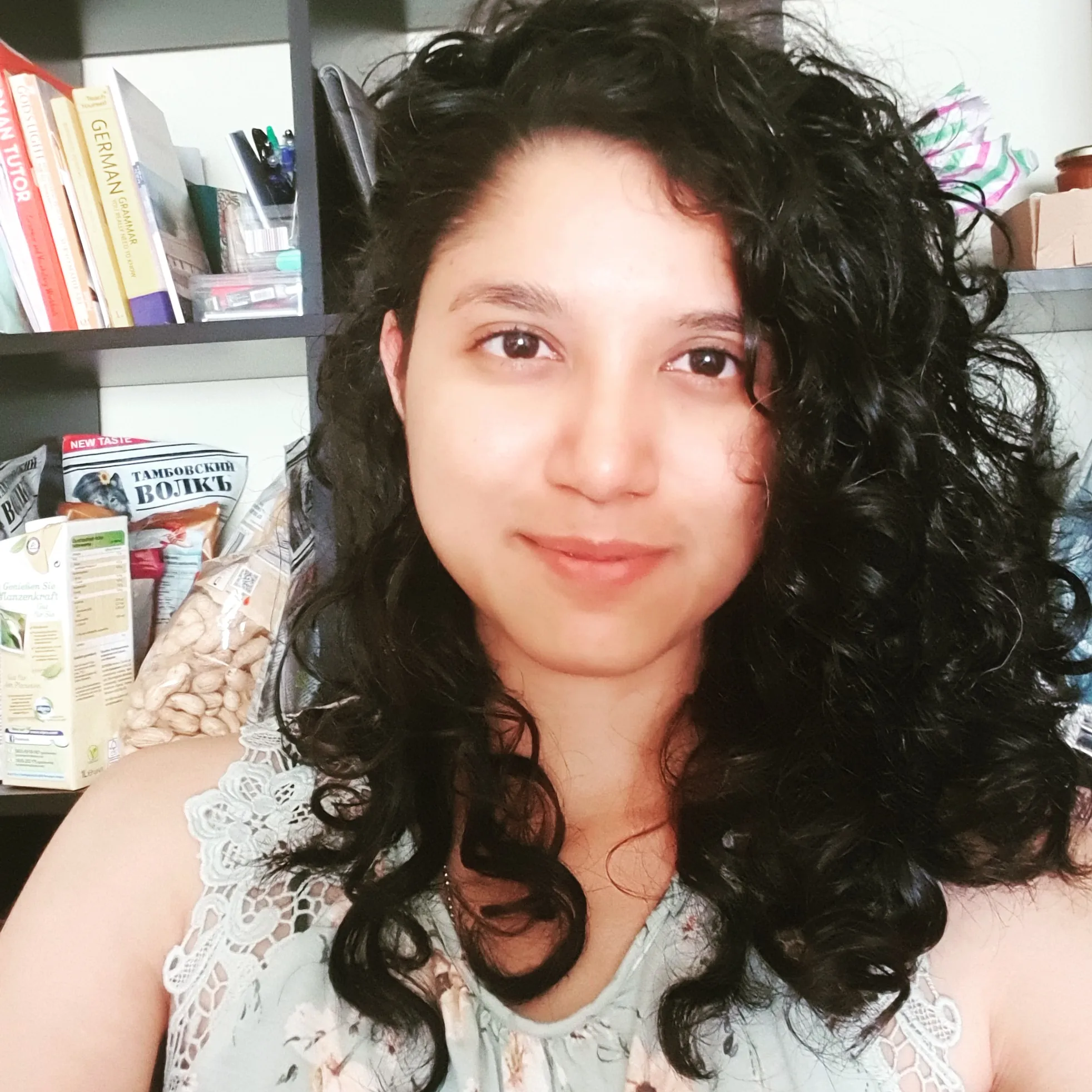Why people love ipassio?
World-class masters as teachers
Personalized & Interactive 1-on-1 classes
Course studio that amplifies learning
Access to the global creative community
Pay as you go - 2 classes at a time
World-class masters as teachers
Personalized & Interactive 1-on-1 classes
Show more
Explore Online Pakhawaj Courses

Our Happy Learners

Real Progress, Real Impact
It is a double-sided barrel-shaped percussion instrument - often considered the predecessor of tabla and mridangam in India.
Pakhawaj was used as an accompanying instrument with Drupad recitals. It is also used with Indian classical dances such as Odissi, Kathak, and Marathi folk songs.
Mridangam and tabla have evolved from Pakhawaj. And dholak has come from the mridangam.
Ideally, the student should be aged 10 years and above. Pakhawaj is a relatively large instrument. It demands strong back and arm support to sit upright and practice for a longer time. So it is better if the student is a little older.
No. But learning any Indian classical instrument is very enriching more than easy. Connect with a good teacher, dedicate yourself completely to the art, and enjoy the process
There are a bunch of courses that you can choose from. Try vocal percussion - Konnakol. It will give you a more holistic learning experience. You could also try other percussion instruments such as tabla or Ghatam (if you like folk music). Besides the numerous options in the percussion category, ipassio offers over 700 online hobby classes helping students across 105 countries to pursue their passion. So, don’t limit yourself.
Pakhawaj is a large instrument and requires strong back support and arm strength. Right sitting postures and hand positioning are taught at the preparatory stages. The right hand is placed on the right drum head and the left hand on the left drum head. Every part of your fingers and palms are used to strike the edges and center of the drum head to create different sounds. Your teacher will guide you through the entire process.
The ability to tune musical instruments is a basic skill that every music practitioner should learn to do on their own. Some musical instruments however demand professional servicing. But percussion instruments such as tabla, pakhawaj, and kanjira, etc are usually tuned by the practitioners themselves. So yes, you will learn to tune the Pakhawaj on your own.
You must sit with the pakhawaj daily. At the initial stage the duration of practice is not at all important. Pick one concept at a time and try to perfect it. Your teacher will help you with a structured plan for practice everyday in between the online pakhawaj classes.
Yes. You will learn about the history and evolution of pakhawaj. You will learn to right the bols of taals, rhythmic phrases and their representation in different tempo (lay). Besides, there will be much more about music in general. Discuss with your teacher during the free meeting regarding how the theoretical part will be taken ahead.
Additional Resources
How ipassio works?

Pick your passion
Ranging from music to creative arts, pick what you love!

Interact with an expert
Connect with your teacher over a free 1-on-1 video call to discuss your learning goals.

Set session schedules
Get session schedule matching your timezone

Pay as you go
2 classes at a time, with no long-term commitments.
Start with a free meeting now!
Pick a Course

Student
Teacher
Download our app and get going with your passion.
Get easy access to the pool of world-class educators, enthusiastic learners and everything exciting!
- Explore hundreds of courses from 400+ teachers
- Enroll easily into the course of your choice
- Mark attendance for every class you have completed
- Buy and refill classes with ease
- Schedule classes as per your availability
- Teachers can easily withdraw their fees










